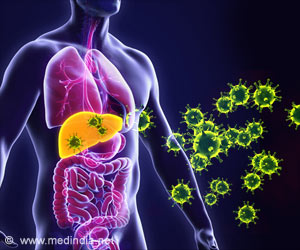
‘If you treat mice with antibiotics and thereby deplete certain bacteria, you can change the composition of immune cells of the liver, affecting tumour growth in the liver.’
Tweet it Now
"What we found using different tumour models is that if you treat mice with antibiotics and thereby deplete certain bacteria, you can change the composition of immune cells of the liver, affecting tumour growth in the liver," said lead author Tim Greten, from the Center for Cancer Research (CCR) at the National Cancer Institute (NCI), a part of the National Institutes of Health. In humans, the greatest proportion of the body's total microbiome -- the collection of bacteria and other micro-organisms that live in or on the body -- is in the gut.
Despite extensive research into the relationship between the gut microbiome and cancer, the role of gut bacteria in the formation of liver cancer has remained poorly understood.
For the study, published in the journal Science, the team carried out a series of experiments with mice. They used three mouse liver cancer models, and found that when they depleted gut bacteria using an antibiotic "cocktail," the mice that had the antibiotics developed fewer and smaller liver tumours and had reduced metastasis to the liver.
The investigators found that antibiotic treatment increased the numbers of a type of immune cell called NKT cells in the livers of the mice.
Advertisement
Further, they found that the accumulation of the NKT cells in the liver resulted from an increase in the expression of a protein called CXCL16 on cells that line the inside of capillaries in the liver.
Advertisement
Finally, they found that one bacterial species, Clostridium scindens, controlled metabolism of bile acids in the mouse gut and ultimately CXCL16 expression, NKT cell accumulation, and tumour growth in the liver.
They found that bile acids also controlled the expression of the CXCL16 protein in the liver of humans, suggesting that the novel mechanism described in the study may potentially apply to cancer patients.
Source-IANS















